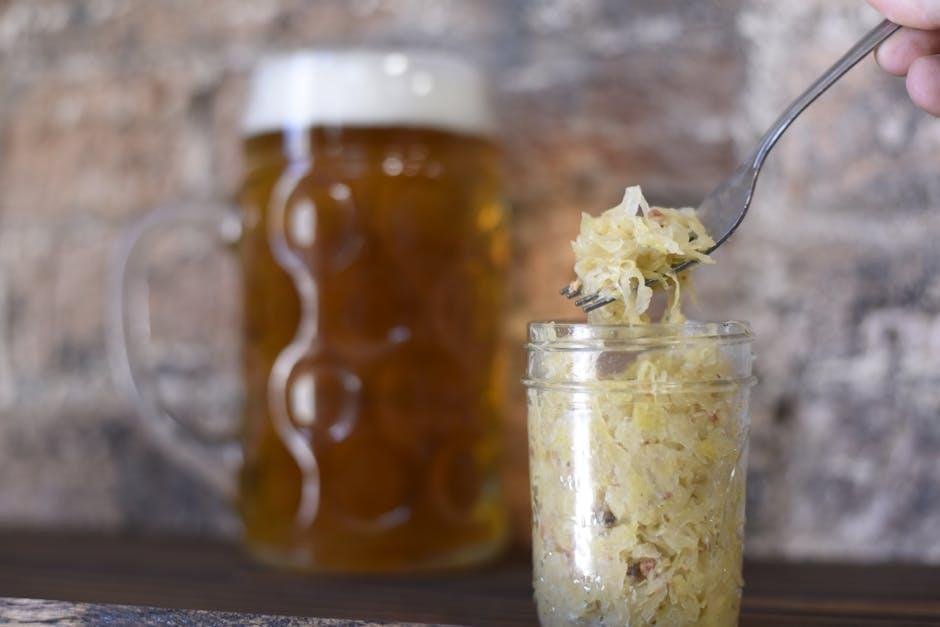In recent years, the intricate relationship between our gut and brain has captivated scientists and health enthusiasts alike. While many of us have long acknowledged the importance of a balanced diet for physical health, a growing body of research suggests that the contents of our digestive system could hold the key to understanding our emotional well-being. The gut, often referred to as the “second brain,” is home to a complex ecosystem of microorganisms that not only aid in digestion but also play a pivotal role in regulating our mood and stress levels.As we delve into the fascinating connections between gut health and mental state, we uncover how what happens in our intestines might resonate in our minds, reshaping how we think about nutrition, mental health, and the holistic nature of our well-being. Join us as we explore the science behind this profound link, and consider how nurturing our gut could pave the way for a brighter, more balanced mood.
Exploring the Gut-Brain Connection: How Microbiomes Influence Emotions
The fascinating relationship between our gut and brain is primarily mediated through a complex network of signals, including hormones, neurotransmitters, and the immune system. Microbiomes,the diverse communities of microorganisms residing in our digestive tract,play a crucial role in this interplay.Research suggests that these tiny organisms can influence our mood by producing neurotransmitters such as serotonin, often dubbed the “feel-good” chemical. Interestingly, about 90% of serotonin is produced in the gut, highlighting the profound impact our digestive health has on emotional well-being. Some of the key ways microbiomes contribute to emotional states include:
- Gut-brain signaling: The vagus nerve serves as a direct communication line, transmitting signals between the gut and brain.
- Inflammation modulation: A balanced microbiome can help reduce systemic inflammation, which is linked to mood disorders.
- Metabolite production: Gut bacteria produce short-chain fatty acids that influence brain function and behaviour.
Emerging studies have also explored the differences in microbiome composition between individuals with various mood disorders, revealing that an imbalanced microbiome may correlate with anxiety and depression. This raises intriguing possibilities for therapeutic approaches that target gut health to improve mental wellness. A simple representation of some common gut bacteria and their associated emotional impacts can be summarized as follows:
| Bacteria | Emotional Impact |
|---|---|
| Lactobacillus | Can reduce anxiety and depression symptoms |
| Bifidobacterium | May enhance mood and cognitive function |
| Faecalibacterium | Associated with better stress resilience |

Nourishing the Mind: Foods That Support Gut Health and Enhance Mood
Fueling your body with the right foods not only nourishes your physical health but also plays a crucial role in enriching your mental well-being. the relationship between gut health and mood starts with the consumption of certain probiotic and prebiotic foods that help maintain a balanced microbiome. These foods can enhance serotonin levels, often dubbed the “feel-good” hormone. Consider integrating the following into your daily diet:
- Fermented Foods: Yogurt, kefir, sauerkraut, and kimchi are rich in probiotics, which promote a healthy gut flora.
- Fiber-Rich Fruits and Vegetables: Bananas, asparagus, and apples serve as prebiotic sources that feed beneficial gut bacteria.
- Whole Grains: Oats,barley,and quinoa not only support digestion but also contribute to stable energy levels and mood improvements.
Incorporating these foods can definitely help regulate mood and enhance overall mental clarity. Moreover, eliminating processed foods and excessive sugar can substantially benefit both gut health and mood stability. For a more structured approach,consider the following table outlining additional foods that support this vital connection:
| Food | Benefit |
|---|---|
| Chia Seeds | Rich in omega-3 fatty acids,supportive of brain health. |
| Leafy Greens | High in antioxidants, aiding in reducing stress and anxiety. |
| Fatty Fish | essential for cognitive function, helping to mitigate mood disorders. |

stress, Gut Health, and the Brain: Understanding the Biochemical Pathways
The intricate relationship between stress, gut health, and emotional well-being unfolds through a complex network of biochemical pathways. At the core of this connection is the gut-brain axis, where gut microbiota communicate with the brain via various signals. These signals include hormones, neurotransmitters, and immune factors, which are constantly shaping our mood and stress response.Imbalances in gut bacteria can lead to dysbiosis, which has been linked to heightened levels of anxiety and depression.The impact of stress on digestive health is also profound, as elevated cortisol levels can impair gut integrity, leading to inflammation and further exacerbating mental health issues.
Understanding the biochemical pathways offers insights into how lifestyle choices affect both gut microbiota and mental health. Key factors that influence this dynamic interplay include:
- Diet: Nutrient-rich foods promote healthy gut flora.
- Exercise: Regular physical activity enhances the gut microbiome diversity.
- Sleep: Quality sleep is essential for maintaining balanced gut bacteria.
- Mood Disorders: Addressing psychological stress can improve gut health.
Exploring these connections reveals a reciprocal relationship where caring for our gut can positively impact our mood, creating a holistic approach to mental wellness.

Practical Strategies for a Happier Gut: Lifestyle Choices for Emotional Wellness
Taking charge of your gut health can significantly enhance your emotional well-being. here are some effective lifestyle choices that contribute to a happier gut:
- Balanced Diet: Incorporate a variety of fiber-rich foods, including fruits, vegetables, and whole grains, which nourish healthy gut bacteria.
- Regular Exercise: Engage in physical activity for at least 30 minutes a day; exercise can help reduce stress and promote beneficial gut bacteria.
- Hydration: Drink plenty of water to support digestion and help maintain a healthy gut lining.
- Quality Sleep: Aim for 7-9 hours of restful sleep each night, as sleep is vital for both gut health and mood regulation.
- Meditation and Mindfulness: Practice meditation or mindfulness techniques to lower stress levels and, in turn, improve gut function.
Additionally, it can be helpful to consider how certain foods affect your mood. A table depicting gut-friendly foods could highlight those that elevate mood and promote gut health:
| Food | Benefits |
|---|---|
| Yogurt | Probiotics enhance gut flora and reduce anxiety. |
| Bananas | Rich in fiber and potassium; promotes satiety and happiness. |
| Fatty Fish | Omega-3s support brain function and reduce depression. |
| Leafy Greens | Contain folate, which is linked to lower stress levels. |
To Wrap It Up
As we draw the curtain on our exploration of the intricate relationship between gut health and mood, it becomes increasingly clear that our bodies are a web of interconnected systems, each influencing and shaping the other. The gut,often referred to as our “second brain,” holds more than just the power of digestion; it plays a pivotal role in our emotional well-being. The research continues to unfold, revealing that the foods we consume, the microbiota we nurture, and the lifestyle choices we make all contribute to the symphony of our mental health.
In navigating this dynamic interplay, we empower ourselves to take charge of our emotional landscape. Whether it’s through mindful eating, probiotics, or simply being attuned to our body’s signals, the potential for positive change is within reach. Just as the gut communicates with the mind, so too can we harness that connection to cultivate a more balanced and fulfilling life.
As we heed the wisdom of our bodies, it is essential to remain curious and compassionate towards ourselves and others. After all, understanding the link between gut health and mood is not just about science; it is about nurturing our whole selves—body, mind, and spirit. In this ever-evolving narrative, let us continue to explore, experiment, and embrace the journey towards holistic well-being.
